Dialogue is essential for learning. No one acquires real knowledge without it.
I asked my students to speak about their education, specifically their studies in literature.
Is it true, as many technocrats and administrators would have us believe, that literature, the humanities even, are plummeting like bad stock in the 21st century education market? Is it true that students no longer want to read literature because they’ve lost the attention span required to read a novel, and their future jobs won’t require these skills? Are reading and writing passé in the digital age? Are schools preparing students for “the 21st century”, whatever that means? Does anyone ask them what they want? What value they find, if any, in their learning, and what they themselves want to learn?
They’re up to answering these questions.
My students are thoughtful, interesting people full of ideas. They make my work mean something. They keep me grounded, and make me try my best. They’ve no idea how much they teach me every day. As teachers, we have to remember that our students have voices, and we must let them speak. We can learn from them. They’ll learn from each other. They must be invited to the table in curriculum design and creation. Otherwise, we run the risk of assuming the wrong things in the name of “21st century commonsense”. I believe Nabokov’s warning still holds true today:
Commonsense has trampled down many a gentle genius whose eyes had delighted in a too early moonbeam of some too early truth […] Commonsense at its worst is sense made common, and so everything is comfortably cheapened by its touch. Commonsense is square whereas all the most essential visions and values of life are beautifully round, as round as the universe or the eyes of a child at its first circus show.
I care about what happens to my students. Graduations are always bittersweet for teachers who must close yet another book in their own learning.
With Prize Day less than two months away, with tests and essays still to be written and lessons to be taught, I want to celebrate the work of these thoughtful and inspiring young people.
Below are links to my grade twelve English students’ blogs. Just hold your cursor over any image and click to experience the world of education through their eyes. Discover and remember the musings, reflections, and experiences of adolescent wonder that grow from the joy of learning and the joy of reading.
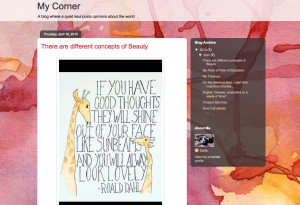 |
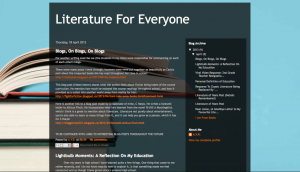 |
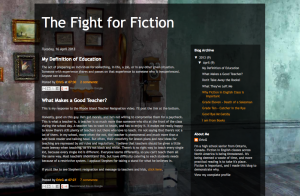 |
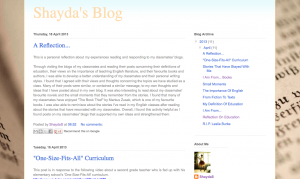 |
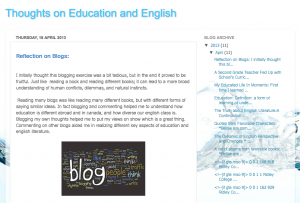 |
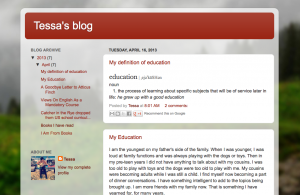 |
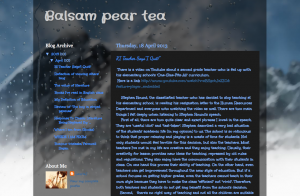 |
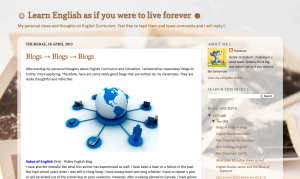 |
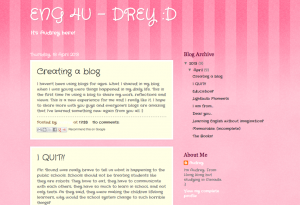 |
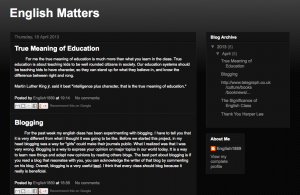 |
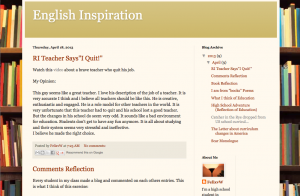 |
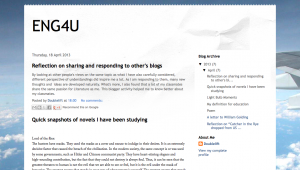 |
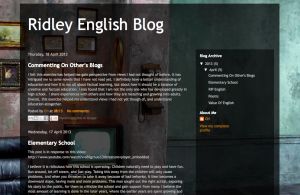 |
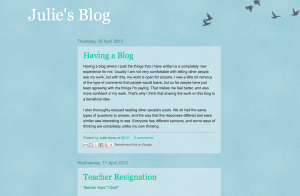 |
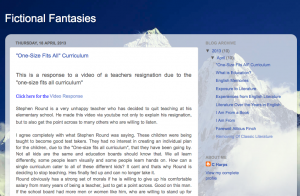 |
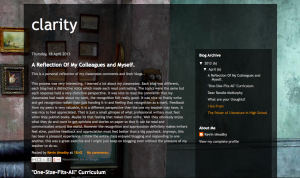 |
Hi Shelley,
I am so excited to have my students read your students’ blogs and engage in a dialogue about the value of English literature in their lives and in the 21st century learning environment.
This blogging we are doing with our students shows that they still want to engage with literary texts and express their ideas about what it means to be a learner in the 21st century English classroom.
I have thoroughly enjoyed our collaboration through Cohort21!
Sally
Same here, Sally. This has been an enriching experience on many levels. I have a feeling this is just the beginning of our collaborative adventures. Many more to come.
My students are passionate about this project and are keen to share ideas and begin a dialogue with others. They are looking forward to reading your students’ thoughts and observations about the world of literature. Look for their feedback in the coming days.
It is a real pleasure to read both this blog posting and the comments. This blog highlights the beat of what it means to be a teacher, in the way that regardless of what 21at century skills you implement, teaching is, at its core, about relationships. Thank you, Shelley, for articulating this so well.
I have also enjoyed following the collaboration between you and Sally, and indeed hope that it continues. This is the type if collaboration that cohort 21 hopes to foster!
Looking forward to Saturday!